The Richest Man in Babylon | Book Review
I had heard that this book is a very insightful financial book, but I only picked it up because it was at home somewhere around. What I thought was just a story set in a time thousands of years BC unexpectedly shifted my mindset in the way I think and handle money. Yet The Richest Man in Babylon isn't even a big book, so how come?
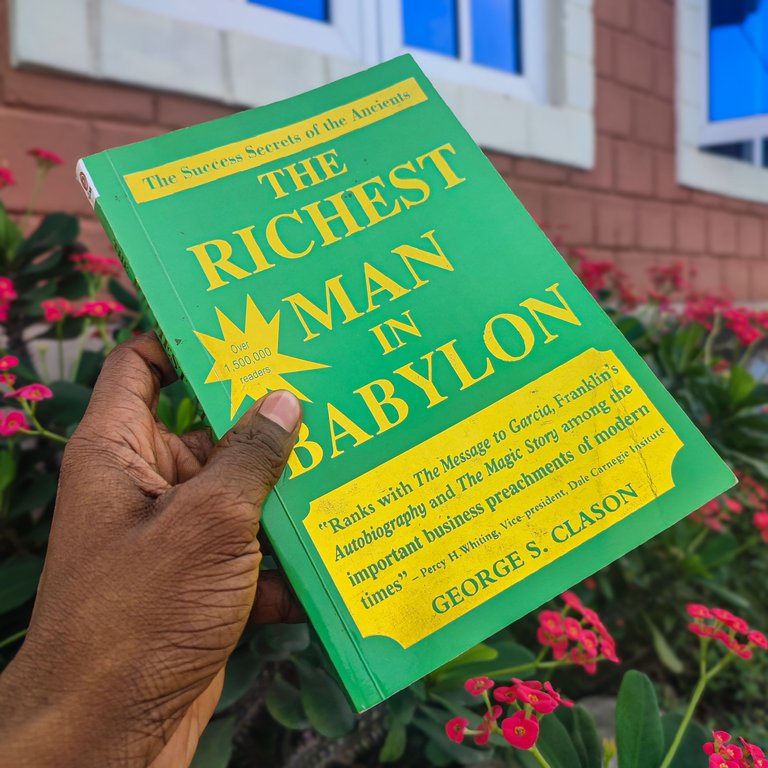
An ox complained about how he works so hard pulling the plough all day every day regardless of his condition. He continued, saying the donkey doesn't work as hard—nothing more than carry their master about—and still gets to eat all day. The donkey, being a good fellow, sympathised with the ox and suggested a plan that could help.
The plan was for the ox to pretend to be sick, and the master would allow a day of rest. It worked, but the farmer hooked up the donkey to do the ox's job. The donkey was livid and regretful in the end, and they both never spoke ever again. The moral is, "If you desire to help thy friend, do so in a way that will not bring thy friend's burden upon thyself."
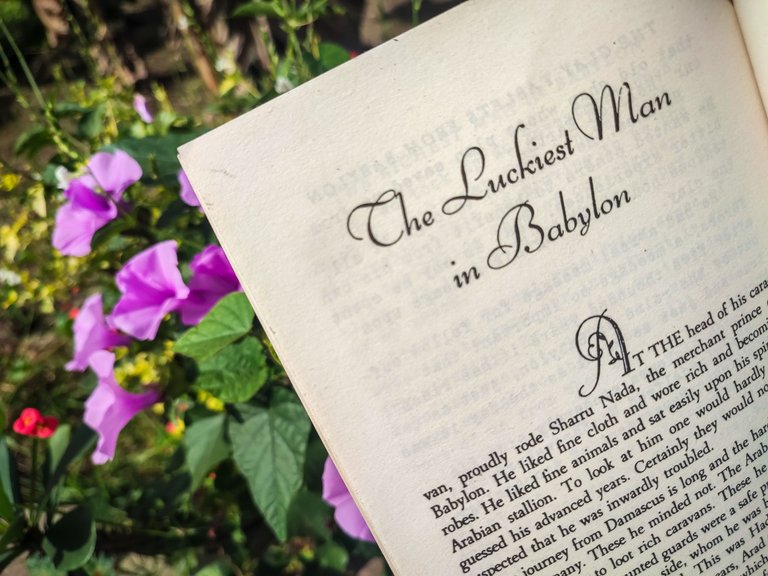
The moral applies to many areas of life, but it was used in the book to teach caution about lending money. Someone in Babylon was unsure what to do with a grand sum of money he recently earned, so he sought advice from a popular money lender in town. And this was one of many stories and lessons the book taught. But there was one that was rather in between the lines and not listed.
Seek to know
Two friends sat to think one day about the reality of their poor financial status in comparison with a friend, Arkad, the richest man in Babylon. They came to the conclusion that in order to even begin to become rich, they had to know what Arkad knew that they didn't.
"Thou bringeth to my mind a new understanding. Thou maketh me realize why we never found any measure of wealth. We never sought it." Kobbi, one of the two friends, said.
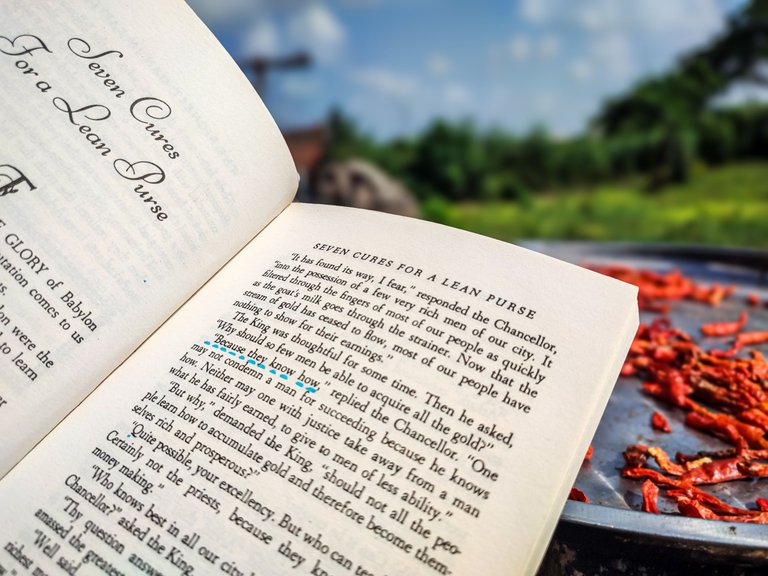
Arkad would then teach them and, later on, 100 more Babylonians the secret to becoming rich. And the most basic secret, which appeared all through the book in different instances, was "Pay yourself first."
We're always paying other people: the landlord, transport fares, subscription services like Netflix, the fashion designer, the shoemaker. From what we earn, we spend, but hardly do many people think of paying themselves first. Arkad teaches in the book that one of seven cures to a lean purse is to first keep aside none less than one-tenth of one's earnings. Savings is the way to prepare the purse for fattening.
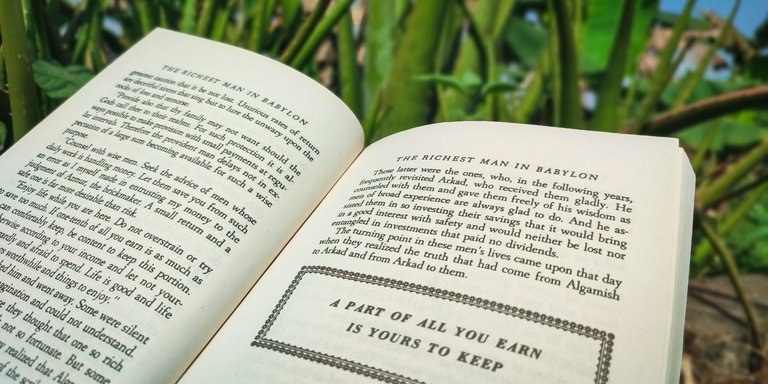
The Richest Man in Babylon made examples of why saving is important. But it also teaches that one should control their expenditures. Live within your means, after you pay yourself. You would likely not even feel the difference anyway. Yet, savings does not exactly make one wealthy; one must make their money make more money.
As I read the book, I began to see clearer the mistakes I had made in the past and the ones I constantly make with my finances. The lessons and wisdom were not even anything out of the ordinary but just common sense and logic that is apparently not common amongst most people. For example, putting my money where I can't or trusting unwise counsel with money is something I learnt the hard way years ago. And this book made it clear the ways money leaves one fast.
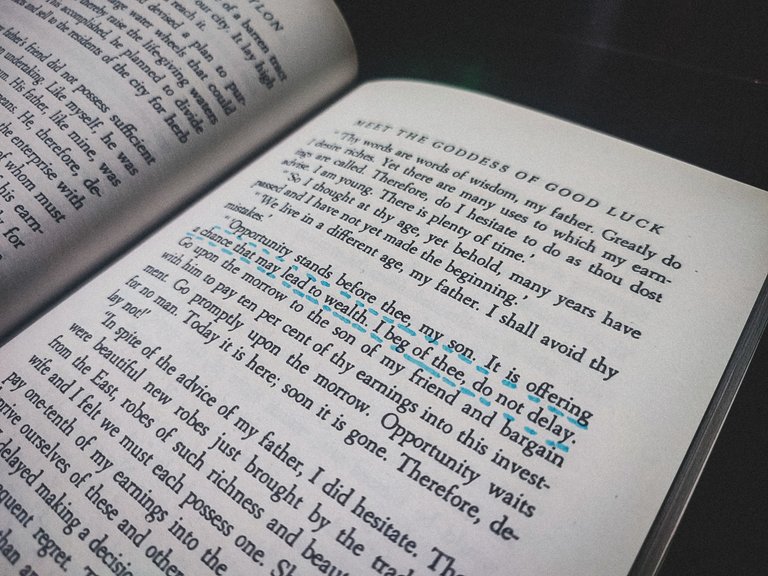
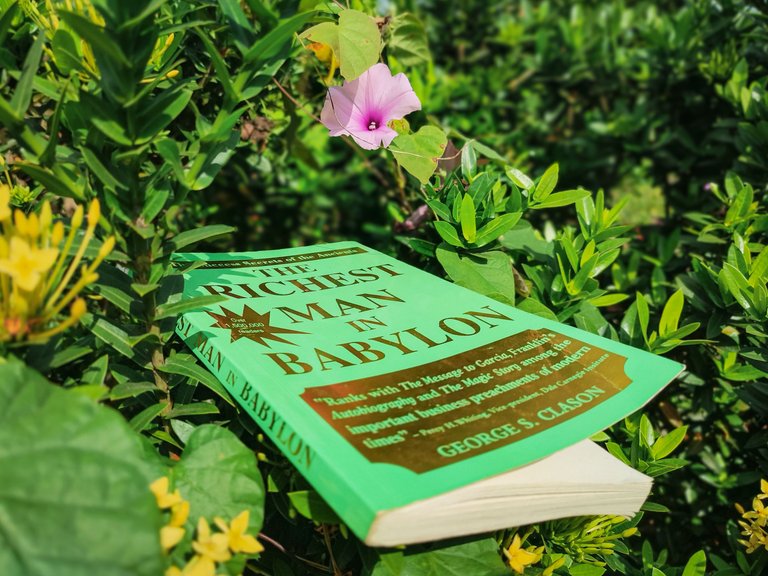
The book was written in Old English, as it was the author's style. It took a while to adapt to reading, but it didn't make the book any less comprehensible. It's an old, small book, but its timeless wisdom from thousands of years ago continually remains relevant and useful.
The Richest Man in Babylon is a great way to gain a basic understanding of how to do better financially. Even if you're not exactly interested in finance books, the stories and lessons are just amusing enough to make it enjoyable. It's inspired me to consider finance books a little more.
Image(s) are original property of the author.
Posted Using InLeo Alpha
I heard about the book long ago and I was interested to read it. I collected the pdf version of it. Unfortunately, I didn't read the book any time. Your post reminded me about the book and I will try to start reading book soon.
That's alright. Whenever you get to read it, you could share what you think of it
I love how you share the lessons you learned, it's definitely a reminder that sometimes the simplest truths are the most powerful! Thank you for sharing your experience. 📖💰
Indeed, fren. Thank you. Any book recommendation?
I so much love this book, I have the soft copy and I'm yet to finish due to some reasons, but.....
This book has lot to teach,change,shift, nourish, expose (in terms of mindset and experience) in spite of the size, color and way it was written.
I love the 5 Laws of Gold part and how it was explained using a story. Bro this book has a lot in it, so much wisdom though old but relevant today.
Every reader found more than one financial mistake they have made or been making. I can even say its a little more than just finance, there are vital life lessons to be learnt.
Definitely getting the hardcover this month, doesn't cost much at all.
That's the thing with e-books for me—it's a lot harder to finish them. But I get to log out from the internet and focus with books.
Yes, the 5 Laws of Gold, taught with the life of Arkad's son. Many lessons in this book, man.
Yes, bro. I've been spending more on books lately, and they're not even taking much. Whenever I'm out in Lagos, I try to buy a book. They're usually around ₦2,000.
Very hard to finish e-books. I haven't tried getting a book in Lagos. Well, I just want to start getting books o, I need the knowledge in those books.
I think you're the one right?
But wait, why are you always reading my kind of books? Just kidding anyways.
Well, aside the life changing financial lessons of the Laws of Gold, I love the way the author incorporated the Jewish style of writing into the writing of this book.
Now you have me suspicious of you. Who is following who?
The style of writing was a bit inconvenient for me at first, but I warmed up to it. So what book are you reading this time?
Lol
I'm not gonna tell you.
Let's see what you write next as your book review.